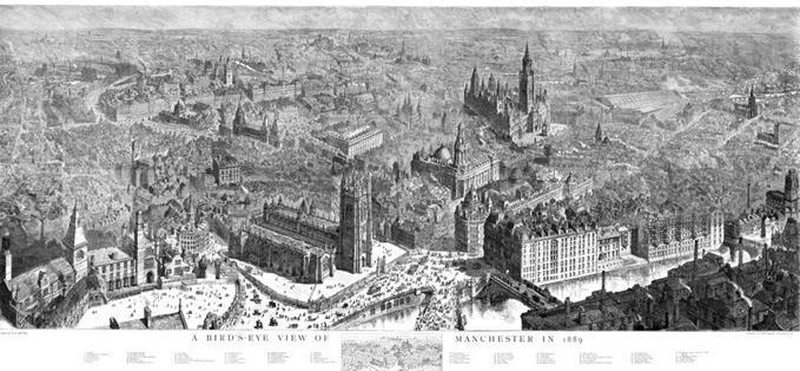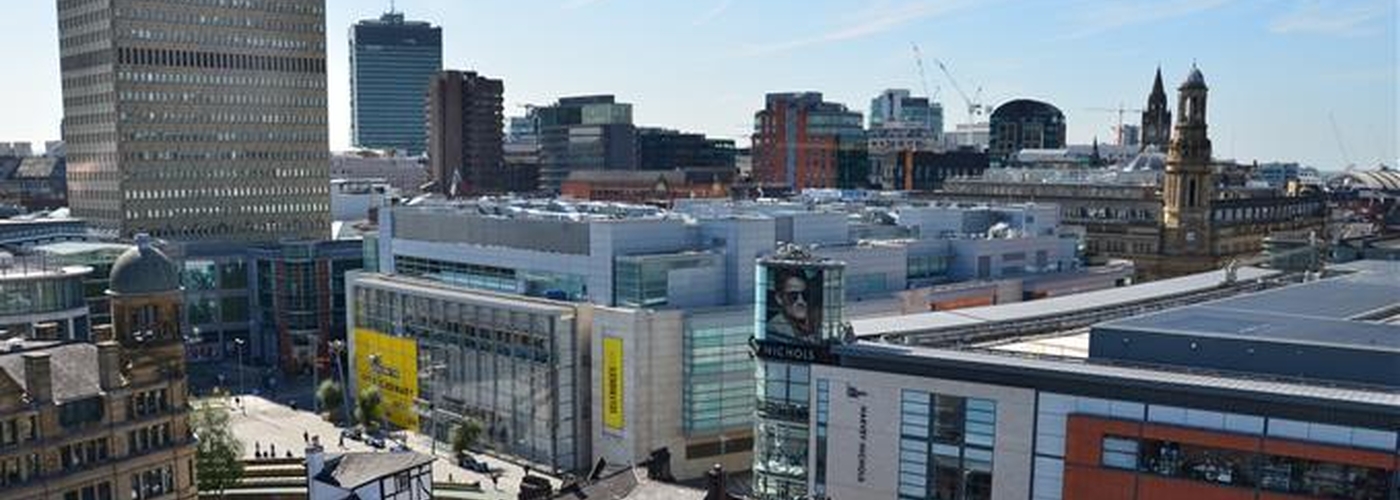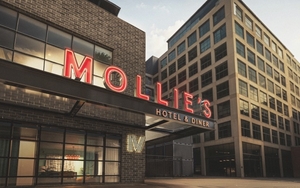Jonathan Schofield considers a southern request for northern leadership and thinks it's a win-win situation
THE ECONOMIST stated in its Bagehot column last week that Manchester should be the capital of the United Kingdom. The London-based magazine revealed how it makes incontrovertible sense to run the country from the banks of the River Irwell.
The article was a splendid provocation with a title of: Go North: The pragmatic case for moving Britain's capital to Manchester. 'So much of what is wrong with Britain,' The Economist wrote, 'today stems from the fact that it is unusually centralised'.
The two key paragraphs were these.
'The point of the exercise should be to create two rival centres of the establishment. That demands a city with the attractions and capacity to counterbalance London; one capable of attracting government departments and their staff, the media, think-tanks, international investors and some businesses. One worldly enough to become a global power centre befitting Britain’s importance. Birmingham is a strong option as the second city by population and the most geographically and figuratively “Middle England” of the big cities. Leeds, too, surely deserves a mention.
'Yet Manchester clearly has the edge. Its position as Britain’s de-facto second city is well-established (a YouGov poll in 2015 asking people which city other than London should be the capital gave it a huge lead). The BBC already has its second home there, in the MediaCity in Salford. Its infrastructure is better than that of Birmingham, it has more space to grow, its airport already has twice the traffic and twice the number of international connections. Birmingham suffers from being close enough to London to tempt people to commute from there (some already do). More than Birmingham or Leeds, Manchester has close physical and cultural links to all three other parts of the United Kingdom: Scotland, Wales and Northern Ireland. At a time when the union is under strain that is valuable.'
What's lovely about this idea is it comes from a leading magazine associated almost completely with London and the establishment despite its world view.
What's also lovely about this idea is that it's not new.
In 1881 a commentator in the esteemed literary and comment magazine, The Cornhill, wrote: 'London is now isolated in the agricultural south...if Britain had now for the first time to choose a capital, its choice would naturally fall upon Manchester.'
London is now not, of course, isolated amongst bumpkins chewing on straw, saying 'ooh-argh', yet it is even more isolated than in 1881. The capital has cut itself off from its own nation within a ridiculous property bubble that damages and unbalances the greater nation. When London coughs the rest of us catch a furious cold. Sadly much of the capital appears, perhaps unfairly, as a focus for public-school jobbery and a magnet for overseas investment that has no ties or loyalty to the UK.

History provides other moments of reflection too, that reinforce The Economist's call to arms.
No other UK city, outside London, has defined an Age as Manchester defined the Age during the first years of the nineteenth century, when in that over-used phrase from historian Asa Briggs, it was 'the shock city'. For a while, despite Manchester's hellish conditions it seemed to offer an alternative vision to an establishment city addled by class and unearned privilege. As another historian, AJP Taylor, put it, Manchester was 'a civilisation created by traders without assistance from monarchs or territorial aristocracy.'
Taylor also called Manchester the least aristocratic city in the UK. Thus, having the capital here would chime well, as The Economist points out, with Scotland and the other nations of the UK. The large diverse cities of the other nations are middle-class and working-class with a similar cultural profile. Nicola Sturgeon would have to shut her mouth about Whitehall.
Manchester is the only British city with a major economic philosophy to its name, the Manchester School, aka The Free Trade Movement. It was the city that took on the establishment in the 1830s and 1840s and won. Given the debate about free trade with Europe post-Brexit it would be apt for Manchester to be the capital now we have to look globally for such deals. Indeed post-Brexit Manchester's newfound status could help make Liverpool the main port of the UK once more.

We could afford to be generous. Both chambers of Parliament, the House of Commons and the House of Lords, would sit in Manchester. The Prime Minister's residence would be here (there's a nice semi for sale on my street in Old Trafford) and clearly the Home Office and the Foreign Office would be in the city, but we could share other departments of state amongst our neighbour cities, Liverpool, Bradford, Leeds and Sheffield. If this were to happen then HS3, a high-speed rail-link east to west through the north would become the priority. We might then achieve some sort of parity on infrastructure spend with London, which currently gets six times as much dosh per person as everybody else in the country.
Jim McClellan writing in Esquire Magazine in 1998 wrote: 'Manchester’s size makes the social processes more visible. You can see how things are developing. Where they might end is another matter. Perhaps it’ll be the first place to show us whether our new cities work. Manchester, as the Mancs love to tell you, is ahead of the game.'
Easy decision then. The monarchy could remain London's 'thing' but, come on Mrs T May it's time to up sticks. You're coming north. You can get closer to your people and what's driving much of British society outside the flimflam of London. Bring the political establishment north and reforge it into something modern and progressive. We have the people, the ideas, the accommodation, the grand buildings, the culture, the higher education, the sport, the stunning countryside and national parks. The media is here with the BBC.
We even have the sense of humour to deal with a mass influx of MPs, civil servants and the whole flunkydom of government.
We'll probably need that humour.
With the government up here, maybe as a nation we could work towards a society that helps lift everybody up as described in our New Year's article here.
So can we have all this sorted by May, Mrs May? Ottawa, Canberra, Pretoria, Washington are all capital cities smaller than other cities in their country, so why not the UK too?
If not this year, maybe next.
You know it makes sense, The Economist says so.










